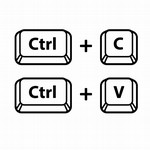Source:
Upshur, Jiu-Hwa, Lo. “Hundred Flowers Campaign.” World History: A Comprehensive Reference Set, edited by Facts on File, 1st ed., Facts On File, 2016. Credo Reference, https://search.credoreference.com/articles/Qm9va0FydGljbGU6NTgwNzI0?aid=19198.
Original Text:
The leaders of the CCP were, however, unprepared for the extent and bitterness of the criticism by writers, scientists, and social scientists. In July 1957 Mao reversed himself, stating that intellectual freedom was only permissible if it strengthened socialism. He denounced those who had spoken out in the Hundred Flowers campaign as “rightists,” “counter-revolutionaries,” and “poisonous weeds.” Many senior CCP leaders had never endorsed the campaign and supported the crackdown. By the end of the year the anti-rightist campaign was in full swing, and more than 300,000 intellectuals had been condemned and sent to jail or labor camps, humiliated by public denunciations, and forced to make confessions. Their careers were ended. Countless bright students and young cadres never got a chance for a career as a result of their participation. Some were executed. The swing of the pendulum to severe repression was sharp and unrelenting. It reflected the insecurity of the CCP leaders and their fear of freedom.
“Copy and Paste” Plagiarism:
In 1956, after collectivizing industry and agriculture, Mao Zedong launched the Hundred Flowers Campaign. The purpose of the campaign was to strengthen the Chinese Communist Party (CCP) by allowing intellectuals to criticize deficiencies within its leadership. Mao believed that allowing and supporting the direct involvement of China’s intellectuals would secure their support for the CCP. However, leaders of the CCP were unprepared for the extent and bitterness of the criticism by writers, scientists, and social scientists. What followed was a crackdown on dissent, and more than 300,000 intellectuals had been condemned and sent to jail or labor camps, humiliated by public denunciations, and forced to make confessions. The tragedy of the Hundred Flowers Campaign was that it was devised as a way to strengthen socialism, but ultimately decimated the ranks of intellectuals who were trying to do so. Rather than make a better Chinese Communist Party, the Hundred Flowers campaign only ruined thousands of lives (Upshur).
The green text in the incorrect passage is directly quoted from the bold text in the original passage. Either quotation marks need to be added, or the passages need to paraphrased.
Proper Integration of Source Material:
In 1956, after collectivizing industry and agriculture, Mao Zedong launched the Hundred Flowers Campaign. The purpose of the campaign was to strengthen the Chinese Communist Party (CCP) by allowing intellectuals to criticize deficiencies within its leadership. Mao believed that allowing and supporting the direct involvement of China’s intellectuals would secure their support for the CCP. However, the sheer volume of criticism and dissent went far beyond what Mao could have anticipated. The press, along with thousands of students and intellectuals, delivered comments ranging from constructive to accusatory. What followed was a crackdown on dissent. Hundreds of thousands of people were forced to confess to criticizing the CCP, were publicly shamed for doing so, or were sent to labor camps. The tragedy of the Hundred Flowers Campaign was that it was devised as a way to strengthen socialism, but ultimately decimated the ranks of intellectuals who were trying to do so. Rather than make a better Chinese Communist Party, the Hundred Flowers campaign only ruined thousands of lives (Upshur).
 Academic writing often involves incorporating source material into your analysis, but you cannot simply copy text from an article you found online and then paste that source information into your paper.
Academic writing often involves incorporating source material into your analysis, but you cannot simply copy text from an article you found online and then paste that source information into your paper.